The Chamber, together with China Federation of Industrial Economics, Association of Industry and Commerce in Taiwan and Macao Chamber of Commerce, hosted the 8th edition of the Cross-Strait cum Hong Kong and Macao Economic Forum to discuss the new business models and cooperation opportunities in promoting low-carbon and green finance industries in Greater China under the theme of “New Era, New Economy, Co-building New Industrial Model”.
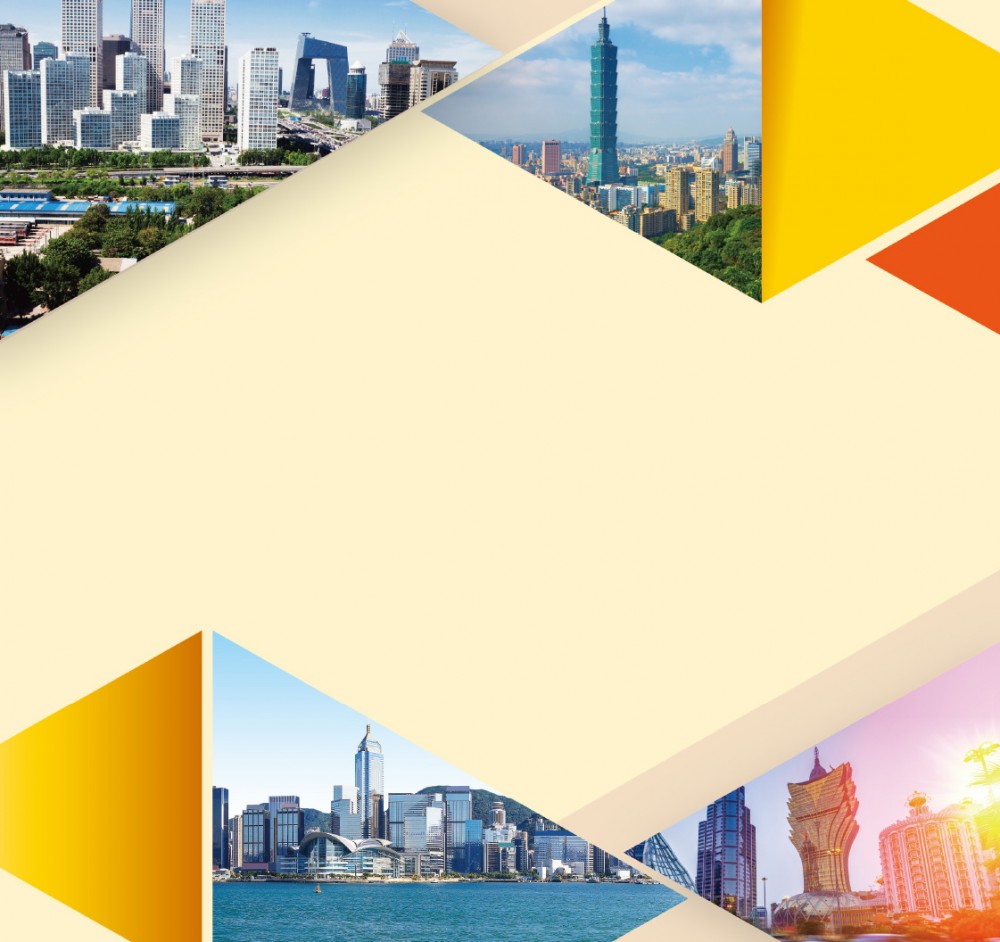 The Forum was first held in 2012 in Hong Kong, and has since been held annually on a rotating basis among the Mainland, Taiwan, Hong Kong and Macao. Physical interactions had not been possible at the Forum over the past few years due to the COVID-19 epidemic. At this year’s Forum, which was held online and offline for the first time, friends from the business communities of the four places interacted and exchanged views via videos.
The Forum was first held in 2012 in Hong Kong, and has since been held annually on a rotating basis among the Mainland, Taiwan, Hong Kong and Macao. Physical interactions had not been possible at the Forum over the past few years due to the COVID-19 epidemic. At this year’s Forum, which was held online and offline for the first time, friends from the business communities of the four places interacted and exchanged views via videos.
The heads of the hosting organizations delivered welcome speeches at the Forum. Yuen Mo, Chairman of the Chamber, said that Hong Kong’s unique, multi-faceted strengths in the Greater China region will enable it to play a functional role as a connecting platform to facilitate the development of the new economy in the four places. Li Yizhong, Chairman of the China Federation of Industrial Economics, believes that strengthening scientific and technological R&D, reinforcing the industrial sector, and driving the digital economy and low-carbon development will be an important direction for the four places in building a new development paradigm. Lin Por-fong, Chairman of the Association of Industry and Commerce in Taiwan, said that reducing carbon footprint to achieve net-zero emissions is now a target pursued around the world, so businesses must change their traditional mindset and cultivate rapid adaptability to accelerate comprehensive industrial restructuring. Chui Sai-cheong, President of the Macao Chamber of Commerce, said that as Macao regards technological innovation as an important starting point to boost economic diversification, the Macao Chamber of Commerce will actively play a leading and unifying role to help the business community integrate technological innovation with digital economic development.
Paul Chan: Driving a green economy depends on the government and industry working together
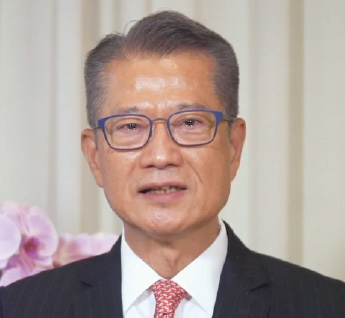
 In his keynote speech, Paul Chan, Financial Secretary of the HKSAR, said that the “14th Five-Year” Plan clearly stated to deepen reform and opening-up, where domestic demand, technology and openness will be the three pillars of the new development paradigm, which presents opportunities for cooperation among the Mainland, Taiwan, Hong Kong and Macao to develop a green economy.
In his keynote speech, Paul Chan, Financial Secretary of the HKSAR, said that the “14th Five-Year” Plan clearly stated to deepen reform and opening-up, where domestic demand, technology and openness will be the three pillars of the new development paradigm, which presents opportunities for cooperation among the Mainland, Taiwan, Hong Kong and Macao to develop a green economy.
He revealed that to support the shift towards a green economy, the HKSAR Government has earmarked over HKD47 billion in carbon abatement measures over the past 10 years to achieve a low-carbon transition. The decarbonization transition can lead to new opportunities for Hong Kong, which is particularly strong in green and sustainable finance. The country has been very supportive of Hong Kong in developing green and sustainable finance.
Chan added that over the past few years, the HKSAR Government, together with the financial regulators and the financial sector, has adopted a multi-pronged strategy to propel the development of green and sustainable finance in Hong Kong. In addition, the HKSAR Government is working towards offering a green financing platform for governments and businesses around the world, and encourages more financial and professional service providers and external assessment agencies to establish a foothold in Hong Kong, which is a regional hub.
He stressed that the HKSAR Government will work to strengthen the unified standards for the development of green and sustainable finance, further coordinate and elevate the participation of the financial sector in the green economy, align with development of the Mainland and overseas markets, and push for Hong Kong to become the preferred investment and financing platform for green enterprises and green projects.
Tap into Business Opportunities from Low-Carbon Economic Development
The Forum also featured two thematic speech sessions. For the first session, Wang Tianyi, Chairman of the Board of China Everbright Environment Group Limited; Ding Yuangang, Vice President of BROAD Group; Lin Sheng-chung, Independent Director of Taiwan Glass Group and Feng Xiaofeng, President and Chief Strategic & Financial Officer of MGM China shared their experiences and views on promoting low-carbon economic and industrial cooperation among businesses in the Mainland, Taiwan, Hong Kong and Macao. Yim Fung, Chairman of the Board of Directors of Guotai Junan International Holdings Limited served as the moderator for this session.
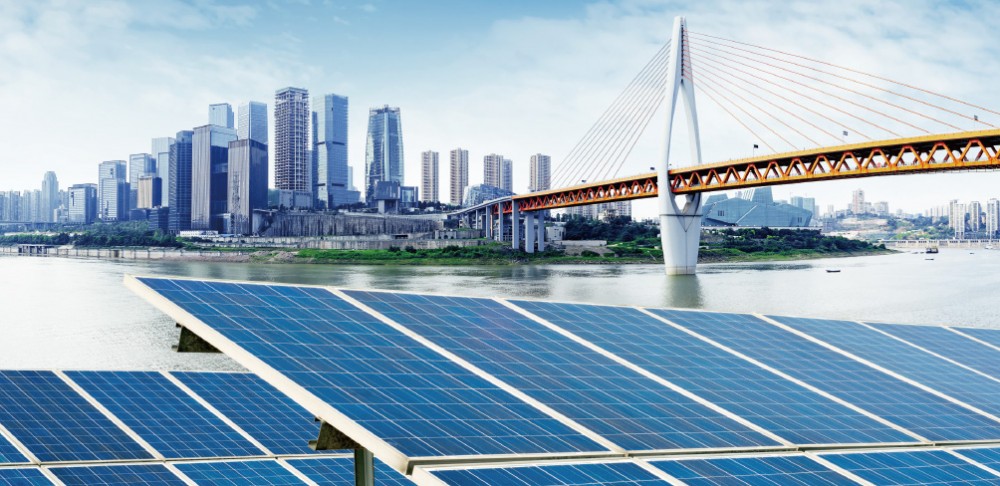
Wang Tianyi: Carbon neutrality has far-reaching significance for Hong Kong
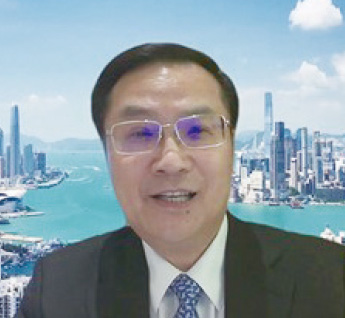
In Wang’s view, carbon neutrality has a dual significance in Hong Kong. One is keeping pace with the West and setting an example for the Mainland. He said that Hong Kong should keep pace with the West in the course of achieving carbon neutrality and set an example for Mainland cities to further consolidate Hong Kong’s position, especially in the Greater Bay Area.
The other is seizing the opportunity to reshape Hong Kong. Wang said that Hong Kong can improve the traditional industries and energise the emerging ones through achieving the carbon neutrality goal. Traditional industries can achieve the green and zero-carbon targets. As for emerging industries, they can focus on high-end green manufacturing, green and low-carbon technological innovation, and cultivate talents in the green and low-carbon fields for China and the rest of the world.
Wang said that Hong Kong’s efforts to achieve carbon neutrality not only present both challenges and opportunities, but also create business opportunities for economic and trade cooperation among the Mainland, Taiwan, Hong Kong and Macao. As the push towards carbon neutrality encourages unprecedented in-depth innovation in various industries, the four places can seize the opportunity to boost the development of green investment and financing in Greater China, providing the world with an international green platform that originates from the East.
Ding Yuangang: Reform building method to achieve a low-carbon economy
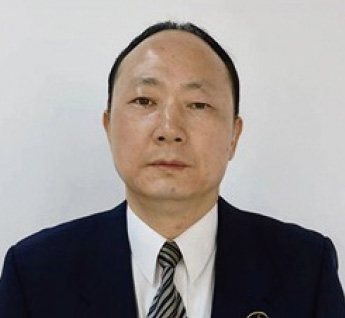
Ding said that for the low-carbon economy to become a reality, the construction industry must reduce carbon emissions. This is because the global construction industry accounted for 50% of total energy consumption. As a global leader in factory-made buildings, Broad Group has invented factory-made stainless steel structural buildings, which meet the needs for green construction.
Ding explained that Broad Group’s green construction is all factory-made and has a short construction period. While the design life of buildings around the world is only 100 years, the main structures of Broad Group’s buildings have a lifespan of 1,000 years. Moreover, as they use stainless steel entirely, emissions can be reduced by 95% during the construction process, i.e., carbon emissions are equivalent to 5% of those of traditional buildings.
The Mainland, Taiwan, Hong Kong and Macao should jointly push for the adoption of factory-made buildings so that more people can benefit from the new low-carbon era brought about by low-carbon products. Ding further said that the four places can gain more markets in the new era if they combine their respective strengths and share resources.
Lin Sheng-chung: Combine technology and business to kickstart new economy with net zero carbon emissions
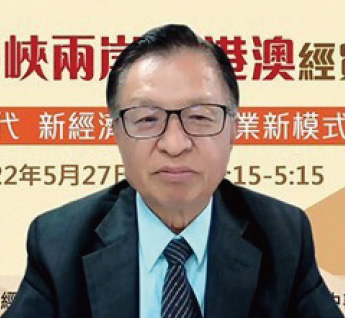
To fully kickstart the development of a new economy with net zero carbon emissions, Lin believes that it is necessary to facilitate the integration of technology and business, and change the innovation and transformation of lifestyles, business models and supply chains in the circular economy, which offers infinite business opportunities.
He pointed out that governments have a significant role to play in driving the global trend towards energy conservation and carbon reduction. Last year, Taiwan rolled out a slew of measures to drive towards the goal of achieving net zero carbon emissions by 2050. In late March this year, it further put forward a long-term plan for carbon reduction, with the objective of combining with the strengths of the private sector to jointly move towards energy-saving and net zero-carbon emissions.
Lin added that as Taiwan is a manufacturing and export-oriented economy, on the supply side, it must pay attention to product design to reduce carbon emissions. To move towards achieving net zero carbon emissions, it is necessary to rely on efficient capital market operations to channel the flow of funds to the green economy through the use of green financial policies.
Feng Xiaofeng: Special economic environment leads to green pathway for Macao’s hotels
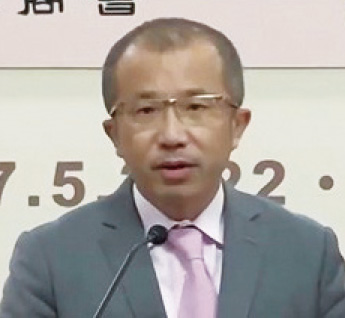
Macao has a special economic environment where it has traditionally been dominated by the resort and tourism industries. Therefore, the Macao Government often starts with these industries when implementing environmental protection measures. Feng revealed that as a large-scale company in Macao, MGM has been actively injecting green elements into all aspects of its operations in recent years, with the goal of establishing a responsible supply chain management system.
He said that the six major resort and entertainment companies in Macao established the Low Carbon Green Hotel Development Alliance (LCGHDA) last year, aiming to unite the industries to promote and share green technologies and experiences to jointly explore a green pathway for the hotel industry. In his view, shooting some relevant promotional videos to play on the large-scale screens of these resort companies will effectively promote and publicize Macao’s characteristics.
Promote Digitalization in the Healthcare Industry
The other thematic speech session was moderated by Li Yin quan, Director of China Merchants Capital Investment; Nisa Leung, Managing Partner of Qiming Venture Partners; Gong Yi, Deputy General Manager of Haier Biomedical; Cheng Tse-fang, General Manager of Shin-Po Life Care, and Ho Kuok-tou, Founder and CEO of Pachira shared their views on the new models for digitalization in the healthcare industry.

Nisa Leung: The Mainland’s healthcare industry is growing rapidly
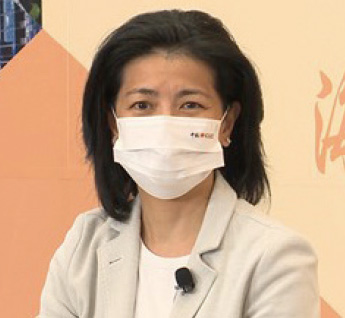
Leung said that China, currently the world’s second largest consumer of healthcare, is developing rapidly in various medical fields.
Meanwhile, the number of mobile internet users in the Mainland has exceeded 1.1 billion which, coupled with the gradual adoption of 5G, has greatly boosted the development of internet-based healthcare, with the number of internet-based hospitals growing rapidly in various provinces and cities.
In Leung’s view, the Mainland’s AI healthcare market is in a period of rapid growth. In the fields of medical imaging and drug R&D alone, thousands of companies have been set up in the Mainland and are growing rapidly, pointing to very broad prospects.
Gong Yi: Digital healthcare ensures vaccine safety
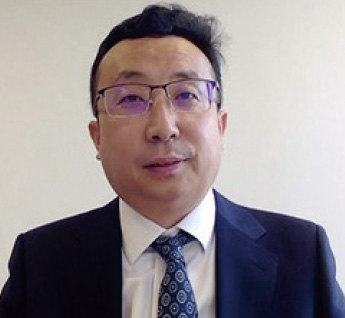
The inoculation, transportation and management of huge amounts of vaccines have become pressing problems since the outbreak of the COVID-19 epidemic. Gong said that his company offers solutions to the aforesaid problems with its focus on digital healthcare technology.
“We have also set up a vaccination appointment platform to achieve data traceability of the entire vaccination process. We also have a smart vaccination city network which is in use in over 10 provinces and cities. After each vaccination, all the data will be uploaded to the cloud in real time, thus greatly improving the efficiency of data collection.”
Their experience in vaccine-related projects can also be applied to other scenarios. For example, Haier’s Digital Public Health Management Solutions can be applied to scenarios such as grassroots public health examination workstations to greatly improve the service efficiency of grassroots medical institutions.
Cheng Tse-fang: Use healthcare technology to cope with population ageing and fertility decline
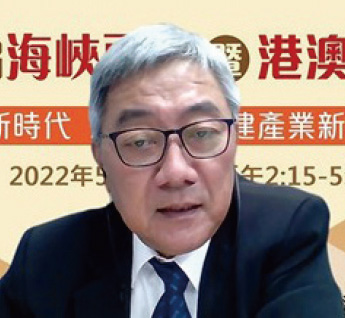
Cheng said that according to US data for 2021, Taiwan’s fertility rate was the lowest among 227 regions in the world, with it being at risk of negative population growth.
“It is expected that Taiwan’s working population would get smaller while its elderly population would get bigger from 2018 to 2030, so the situation could be quite severe in the future.”
Cheng said that the ageing of population and decline in fertility rate are unlikely to reverse in the near future, but healthcare technology can be used to enable the elderly to live in peace at home and ease the social burden. For example, Shin-Po Life Care’s home care platform enables the elderly to call for an ambulance whenever they need it. It also offers testing devices to enable suboptimal healthy elderly people to upload data daily and monitor their health conditions at any time so that they can enjoy their life in retirement with peace of mind at home.
Ho Kuok-tou: Smart voice technology helps elderly healthcare
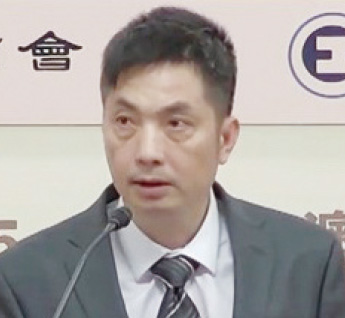
The Mainland’s population is ageing severely, with the number of people over the age of 60 expected to surpass 400 million by 2035, i.e., one in every three people would be an elderly. However, on the other hand, it has also created a considerable silver market. Ho said that his company’s technology can be used in the elderly healthcare industry.
“With voice control, the elderly can remotely control electronic devices in the room, or make emergency contact.” In addition, as many elderly people would miss their children, Pachira’s voice system can replicate their children’s voice and use it to read stories or chat with them so that the elderly people can listen to the familiar voices of their children.
Ho further said that according to statistics, many elderly people have very similar questions for the doctor, so Pachira has specially developed a virtual consultation system to allow hospitals to divert patients. Many “populars” questions can even be answered by a doctor’s duplicated voice. In his view, in the long run, AI technology should be used more widely to improve the efficiency of home devices and create a safe and comfortable home for the elderly.




